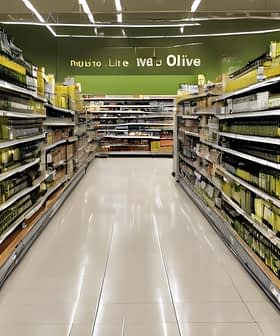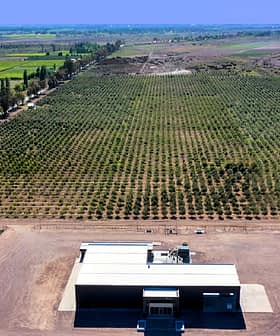E.U. - Japan Trade Deal Brings Opportunities to Olive Oil Exporters
Many European agricultural products will enjoy reduced taxes or an entirely tax-free status when exported to Japan, opening the way for EU farmers and exporters to penetrate a market of 127 million people.
The European Union and Japan have agreed on a deal that will boost the trade of goods and services between them by eliminating duties and cumbersome procedures. Many European agricultural products will enjoy reduced taxes or an entirely tax-free status when exported to Japan, opening the way for EU farmers and exporters to penetrate a market of 127 million people.
European agriculture also has something to celebrate, with access to the enormous Japanese market and protection for over 200 distinctive food and drinks.
The Economic Partnership Agreement (EPA) was the result of long negotiations that started in 2013. The agreement covers almost one-third of the world’s economy and affects 600 million people.
Cecilia Malmström, the EU Commissioner of Free Trade, said the EU-Japan agreement is the biggest bilateral agreement ever negotiated by the EU. “The economic benefits of this agreement are clear,” she noted. “The deal will open huge market opportunities for both sides. European agriculture also has something to celebrate, with access to the enormous Japanese market and protection for over 200 distinctive food and drinks.”
Currently, the annual exports from the EU to Japan exceed €58 billion ($67 billion) for products and €28 billion ($32 billion) for services, and it is estimated that EPA will save EU exporters approximately €1 billion ($1.16 billion) in customs duties every year.
Tariffs on more than 90 percent of EU exports to Japan will be eliminated immediately when the EPA comes gradually into effect in early 2019. When the agreement is fully deployed, 97 percent of the EU’s products and services exported to Japan will have their customs duties sharply reduced or completely abolished. The deal includes industrial, forestry, phytosanitary, textile, and food products, and financial, medical, and maritime services, and many more.
When it comes to agriculture, Japan is extremely valuable to European farmers and food producers. It is the EU’s fourth-largest buyer with annual imports value exceeding €5.7 billion ($6.60 billion). The agreement will enable most of Europe’s agri-food products, like wine and cheese, to enter Japan completely tax-free.
But apart from the apparent benefit of creating an open trade zone of 600 million people, what will the agreement bring to olive oil producers and exporters?
There are no duties imposed on imported olive oil in Japan today, but there are other barriers that will be eliminated by the agreement.
For example, the standards of the International Olive Oil Council (IOC) for labeling of bottles containing olive oil are not currently applicable in Japan, creating uninviting conditions for exporters who need to adjust to the specific labeling requirements of the country.
By discarding its own labeling rules and by adopting the rules of the IOC, Japan will make it a lot easier for bottlers and exporters to send their olive oils to this part of the Far East.
In advance, some Geographical Indications (PGIs) will be preserved, meaning that Japan will recognize the special status of agricultural products with a specific European geographical origin.
Greece, among other member states of the EU, can get its fair share from this colossal agreement. According to the European Commission, the main products exported from Greece to Japan are marble, pasta products, and olive oil, with the value of annual exports reaching €121 million ($140 million) and sustaining 2,981 jobs in Greece.
The Office for Economic and Commercial Affairs of the Greek Embassy in Tokyo told us that they foresee an indirect benefit for olive oil from the opening of the Japanese market to EU products, which will prompt consumers to opt for more products from the EU member states.
For example, feta cheese is going to be relieved from any taxation and protected from other imitative products imported in Japan. And since feta is often combined with olive oil in food recipes, its consumption, it is hoped, could ultimately lead to an increase of olive oil consumption in the country.
As far as the Geographical Indications are concerned, the Office specified that the agreement recognizes and protects a limited number of the Protected Destination of Origin (PDO) labels from each EU member state.
For the Greek olive oil industry, the agreement recognizes the PDOs of Sitia Lasithi Olive Oil from Crete and Kalamata Olives, which means that they will carry their distinctive status in the Japanese market. The other two Greek agricultural products that will retain their PDO labels in Japan are Feta Cheese and Chios Mastic.
While the Japanese olive oil market is dominated by Spain and Italy, the unprecedented agreement between Japan and the European Union for setting up a huge free trade zone will present opportunities for exporters and merchants to check into the vast and, now, more accessible market.








